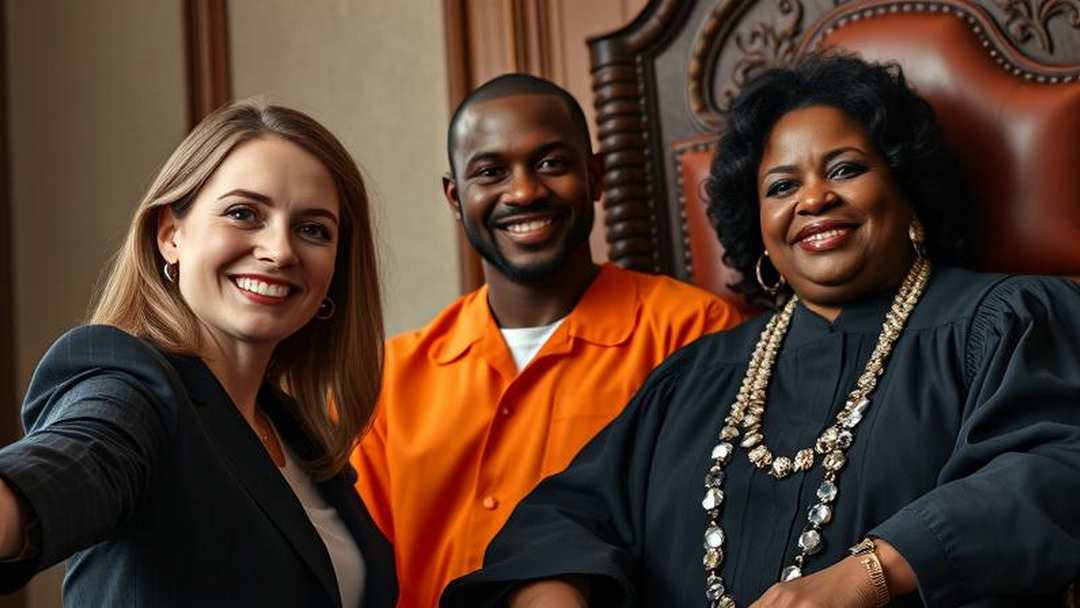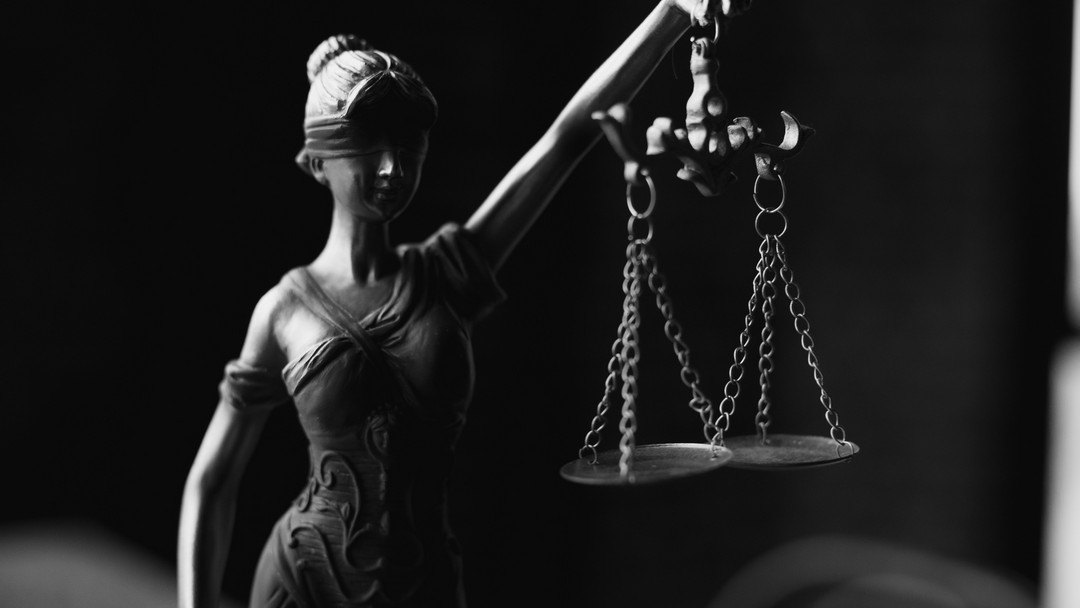No Results Found
The page you requested could not be found. Try refining your search, or use the navigation above to locate the post.

On October 11, 2024, the Michigan Court of Appeals issued a decision in the case People of the State of Michigan v. Blake Anthony-William Barton.
The case involved a drunk driving investigation following a car accident in Britton, Michigan.
The incident occurred on September 10, 2022, at approximately 2:00 a.m. Officer David Low of the Raisin Township Police Department responded to a car accident at the intersection of Sutton Road and Ridge Highway. He found a vehicle in a wooded area off the roadway, with the driver, later identified as Barton, partially pinned underneath the car.
Barton admitted to consuming alcohol earlier in the night and claimed he was on his way to a rodeo. However, it was already 2:16 a.m., well past the time any rodeo would have ended.

Barton was transported to ProMedica Toledo Hospital in Toledo, Ohio, for treatment. While there, medical staff drew his blood for medical purposes, not under arrest.
Two days later, the prosecutor’s office requested the chemical analysis of Barton’s blood from the hospital.
The prosecutor’s office sent a letter to Toledo Hospital requesting that it provide Barton’s chemical analysis from September 10.
The Prosecuting Attorney for Lenawee County signed the letter. Specifically, he requested:
Please provide to the Raisin Township Police Department the complete chemical analysis of the above-named subject that was performed on or about September 10, 2022.
This request is submitted in accordance with Ohio Revised Code, 2317.02, which is attached for your reference.
This is an open and pending investigation. Please mail the records to the Raisin Township Police Department . . . (emphasis omitted).
The letter did not attach a copy of Ohio Rev Code 2317.02 as it stated.
Instead, the prosecutor’s office provided a Michigan Attorney General opinion detailing the enforceability of MCL 257.625a(6)(e) prior to a person’s arrest.
In response, Toledo Hospital sent the chemical analysis results to the police department. The chemical analysis disclosed that Barton’s blood and urine samples, which indicated a blood alcohol level of 0.23 and the presence of tetrahydrocannabinol (THC).
The Lenawee Circuit Court initially granted Barton’s motion to suppress the blood evidence due to a perceived technical noncompliance with Michigan Compiled Laws (MCL) 257.625a(6)(e).
(e) If, after an accident, the driver of a vehicle involved in the accident is transported to a medical facility and a sample of the driver’s blood is withdrawn at that time for medical treatment, the results of a chemical analysis of that sample are admissible in any civil or criminal proceeding to show the amount of alcohol or presence of a controlled substance or other intoxicating substance in the person’s blood at the time alleged, regardless of whether the person had been offered or had refused a chemical test. The medical facility or person performing the chemical analysis shall disclose the results of the analysis to a prosecuting attorney who requests the results for use in a criminal prosecution as provided in this subdivision. A medical facility or person disclosing information in compliance with this subsection is not civilly or criminally liable for making the disclosure.
However, the prosecution later submitted evidence showing that the court’s decision relied on a factual error.
Consequently, the Michigan Court of Appeals reversed the circuit court’s decision and remanded the case.
This goes to show you can still fight a case even when you think all is lost.
If you are interested in more in depth detail read the Opinion here.
Disclaimer: This article provides a general overview, or opinions and does not substitute for legal advice. As with any law it can change or be modified and research should be done before you rely on any information provided on the internet. Although we make all attempts to link relevant laws these laws can often be gray and corrupted to fit a narrative. Anyone charged with any alleged crime should consult an attorney for specific legal guidance. Articles may be 3rd party or contain opinions and information that do not reflect the current stance of Komorn Law.
The page you requested could not be found. Try refining your search, or use the navigation above to locate the post.

Haley Butler-Moore sped up to pass a semi on the highway when she suddenly saw the police lights.
She’d left Albuquerque hours earlier, heading to a Halloween party in Denver. Tired from the long drive, she recalled being nervous as she pulled out her paperwork. The trooper asked Butler-Moore to come sit in the patrol car.
“Do you use any recreational drugs?” asked the officer, as captured on the body camera.
“No,” said Butler-Moore.
“OK, because your eyes are saying something completely different. So how much have you used today?”

At the police station, the DRE officer, one of more than 8,000 scattered in departments across the country, asked Butler-Moore to recount everything she did that day.
“If there is no impairment, it will come out here,” the officer told her, the entire evaluation recorded on bodycam.
But the officer had concerns. Butler-Moore had put the wrong date, from the day before. That’s because, Butler-Moore said, she didn’t realize it was already after midnight.
Read the whole story here at MLive
Disclaimer: This article provides a general overview, or opinions and does not substitute for legal advice. As with any law it can change or be modified and research should be done before you rely on any information provided on the internet. Although we make all attempts to link relevant laws these laws can often be gray and corrupted to fit a narrative. Anyone charged with any alleged crime should consult an attorney for specific legal guidance. Articles may be 3rd party or contain opinions and information that do not reflect the current stance of Komorn Law.
So you got pulled over and charged with DUI from Cannabis use and this ends up on the report 11-Nor-9-carboxy-Δ9-tetrahydrocannabinol (11-COOH-THC or THC-COOH) as part of the test results. What is it?? Here's what they say...
DUI in MichiganDriving under the influence (DUI) is a serious offense in Michigan that can result in severe legal consequences. Michigan DUI laws and penalties are designed to prevent impaired driving and keep the roads safe for everyone. From fines and license...
Michigan's OWI Laws and PenaltiesAn DUI / OUI / OWVI conviction requires proof only that the driver shows visible signs of impairment due to ingesting alcohol or drugs. The Michigan Law Under MCL 257.625(3), you are assumed guilty of a crime if, regardless of your...
Michigan Laws on Boating Under the InfluenceBoating is a fun activity, but it can be dangerous if the operator is under the influence of drugs or alcohol. Michigan law prohibits operating a motorboat while under the influence of drugs or alcohol. Boating Under the...

In Case You Missed It
November 30, 2023
“Today, we are expanding voting rights and strengthening our democracy,” said Governor Whitmer. “Michiganders spoke clearly last year when they overwhelmingly passed Proposal 2, and now we are building on that effort. By banning deepfakes and AI in campaign advertisements, criminalizing violence towards election workers, and allowing souls to get to the polls, we are making our sure every Michigander’s vote is cast and counted.”
“This is a great day for democracy and for the people of Michigan,” said Secretary of State Jocelyn Benson. “I’m grateful to the Governor and to our legislative partners doing the thoughtful, collaborative work to make our elections safer and more accessible for all citizens. With these new tools we are well-prepared to administer secure and fair elections in 2024 and to preserve the strength of Michigan’s democratic process for future generations.”
Protecting Election Workers and Officials
House Bill 4129, sponsored by state Representative Kara Hope, guarantees protection under the law for Michiganders from the actions of intimidating an election official and preventing an election official from performing the official’s duties during an election and enforces a corresponding criminal penalty.
Senate Bill 505, sponsored state Senator Dayna Polehanki, would prescribe a maximum felony penalty of five years for individuals engaging in activity that would prevent or prohibit election workers from doing their jobs.
Improving Election Efficiency
Senate Bill 385, sponsored by state Senator Erika Geiss, amends Michigan Election Law making it easier for Michiganders to participate in the Democratic process as an election inspector by allowing them to file an application online, which will also save counties, cities, and townships money on paperwork.
“At the heart of our democracy is the essential right to vote. Today, with House Bills 4983 and 4695, we’re making it easier to exercise that right,” said state Representative Penelope Tsernoglou (D-East Lansing). “These bills speak to our collective responsibility to uphold the democratic values that define us.
House Bill 4569, sponsored by state Representative Betsy Coffia, allows for preregistration of an applicant that is at least 16 years old but not older than 17 and a half, so that the Secretary of State can process their voter registration in that eligible election year.
“Allowing young people to pre-register to vote — particularly while they’re learning about civics and the democratic process in school — will undoubtedly increase participation in our elections by ensuring when they are legally eligible to vote at 18, they will be all set to become a lifelong voter,” said State Representative Betsy Coffia (D-Traverse City).
Voter Registration
Senate Bill 594, sponsored by state Senator Jeremy Moss will expand voter registration options for citizens by allowing folks to register to vote using the last four digits of their social security number which is commonly used as a secure method in other areas of government.
House Bills 4983, 4984, 4985, and 4986 further expands Michigan’s automatic voter registration process.
House Bill 4983 requires the Secretary of State to register any person who applies for a license or ID card who is eligible to register to vote and to send that applicant a notice of registration with an instruction on how to decline that registration.
House Bills 5143, sponsored by state Representative Matthew Bierlein, defines “artificial intelligence” under the Michigan Campaign Finance Act.
“Artificial Intelligence is a rapidly evolving technology. As we go forward, it’s going to have an even greater impact on our elections process and how people consume political information leading up to elections,” said state Representative Matthew Bierlein (R-Vassar). “Transparency is crucial as this technology moves forward and I’m looking forward to working with my colleagues across the aisle on a bipartisan package to address these evolving concerns.”
House Bill 5144, sponsored by state Representative Penelope Tsernoglou, makes it a crime for a person to knowingly distribute materially deceptive media generated by artificial intelligence if they do so with the intent of harming the reputation or electoral prospects of a candidate in an election occurring within 90 days and deceiving voters into falsely believing that the depicted individual engaged in the fake speech or conduct, and the distribution is reasonably likely to have that result.
House Bill 5145, sponsored by Representative Noah Arbit (D-West Bloomfield), adds a felony sentencing guideline for a person who violates House Bill 5144 more than once within five years.
Legal Counsel and Your Rights
When facing legal challenges, particularly in criminal cases, it is advisable to seek legal counsel immediately.
An experienced attorney can provide guidance on how to navigate interactions with law enforcement while safeguarding your constitutional rights.
Since 1993 our expert legal defense in navigating criminal law matters and protecting your constitutional rights are what we eat for breakfast everyday.
Contact Komorn Law PLLC if you’re ready to fight and win.
Research us and then call us.

Note: This is what they are supposed to do. Whether they give a damn about you and the outcome is up to the individual attorneyWhat it is supposed to beIn Michigan, public defenders play a vital role in the criminal justice system by providing legal representation to...

Same Thing - Different DayWhitmer's $3B plan to fix Michigan roads calls for more corporate, marijuana taxes, taxes at the pump and you can just imagine the ones you don't know about.Michigan Governor Gretchen Whitmer has introduced a comprehensive three billion...
Other Articles
Michigan Criminal Laws FAQs Assault and BatteryAccording to Michigan State Law, Assault and Battery are distinct but often related offenses. There isn't one single statute that explicitly defines both terms together. Instead, their definitions have evolved through...
Michigan House HearingHB-4391 Saliva Test Update 5-22-25Watch the hearing or read the summary.Click here or image below to see videoFYI: Marijuana although voted to be legalized is still classified as a controlled substance in the State of Michigan and Federally. More...
Michigan Criminal Laws FAQs Marijuana OffensesFAQ 1: Is recreational marijuana legal in Michigan? Answer: Yes, recreational marijuana is legal for adults 21 and over in Michigan. However, there are restrictions on possession, use in public places, and driving under...
Michigan Criminal Laws FAQs Drunk Driving (Operating While Intoxicated - OWI)FAQ 1: What is the legal blood alcohol content (BAC) limit in Michigan? Answer: In Michigan, the legal BAC limit for operating a vehicle is 0.08% for individuals 21 years of age or older. For...

The recent theft of over 1,000 pounds of marijuana from 305 Farms, a corporate cannabis grower in West Michigan, has raised serious concerns in the industry.
This incident, which involved more than $600,000 worth of product, occurred at the farm’s expansive 39-acre facility in Lawrence, located about 30 miles west of Kalamazoo.
Investigations suggest that individuals with insider knowledge may have played a role in the crime. Like many cultivators across the state, 305 Farms has been facing significant challenges in this competitive market.
In July 2024, a group of employees filed a lawsuit against the company, claiming that it had failed to compensate them for thousands of dollars in wages owed.
The oversaturation of Michigan’s legal cannabis market has led to historically low prices, creating significant hurdles for cultivators trying to thrive in this challenging landscape.
A few days later and this happens…
Oct 28, 2024 – The general manager of 305 Farms is currently under scrutiny for possible criminal charges related to the sale of over 660 pounds of cannabis, with nearly $270,000 in proceeds allegedly utilized to pay his employees for outstanding wages.
Employees allege that the company indicated termination would be a consequence for not returning the funds from the sale as 305 Farms has faced a considerable reduction in its workforce over the past year.
Allegedly they have been enduring a work environment characterized by threats, humiliation, lack of compensation, and excessive stress.
Via hearsay it is alleged that the company owed more than an estimated $1 million in unpaid wages beforethe GM’s defiant sale.
There will be more to come.
Disclaimer: This article provides a general overview, or opinions and does not substitute for legal advice. As with any law it can change or be modified and research should be done before you rely on any information provided on the internet. Although we make all attempts to link relevant laws these laws can often be gray and corrupted to fit a narrative. Anyone charged with any alleged crime should consult an attorney for specific legal guidance. Articles may be 3rd party or contain opinions and information that do not reflect the current stance of Komorn Law.
Step by StepMichigan House Bill 5450 of 2024 is a bill that was introduced by Representative Sharon MacDonell on February 14, 2024. The bill was referred to the House Committee on Education and was reported with a recommendation with a substitute on May 14, 2024. The...
You work hard. Now get ready to work harder to prepare to give more.President Biden's administration has proposed the reclassification of marijuana from a Schedule I controlled substance to a Schedule III drug, which recognizes its medical benefits. This significant...
You work hard. Now get ready to work harder to prepare to give more.In Michigan, police can take your dashcam footage in specific situations, primarily when they believe it could serve as evidence in a criminal investigation. Michigan law permits officers to seize...
People who are going to need a LawyerMan so drunk field sobriety tests were ‘too dangerous’ sentenced to life in prison for repeated DWI convictions‘Several terabytes’: Diddy prosecutors shed light on ‘voluminous’ discovery, including iCloud accounts and dozens of...
Oral arguments in Facebook v. Amalgamated Bank will beginThe justices are set to review securities law as they hear arguments in a significant case linked to the 2015 data breach involving Cambridge Analytica and Facebook. The tech giant’s effort to fend off federal...
The Fourth Amendment was established to protect individuals from unreasonable searches and seizures, yet there are exceptions.In Michigan, understanding the concepts of search and seizure, particularly regarding consent and plain view, is crucial for both law...
A Case Summary: People v. Blake Anthony-William BartonOn October 11, 2024, the Michigan Court of Appeals issued a decision in the case People of the State of Michigan v. Blake Anthony-William Barton. The case involved a drunk driving investigation following a car...
Police say they can tell if you are too high to drive. Critics call it ‘utter nonsense’Haley Butler-Moore sped up to pass a semi on the highway when she suddenly saw the police lights. She’d left Albuquerque hours earlier, heading to a Halloween party in Denver. Tired...
Governor Whitmer Signs Historic Election Bills Package to Ensure Every Vote Can be Cast and CountedIn Case You Missed It November 30, 2023 “Today, we are expanding voting rights and strengthening our democracy,” said Governor Whitmer. “Michiganders spoke clearly last...
Thieves make off with 1,000 pounds of premium flower in cannabis from a corporate grower in Michigan. Then, the GM sells off 650+ pounds to pay employees.The recent theft of over 1,000 pounds of marijuana from 305 Farms, a corporate cannabis grower in West Michigan,...

August 2024, the U.S. Army Corps of Engineers is transporting nuclear waste from the Manhattan Project (Read it) to the Wayne Disposal facility in Belleville, Michigan near the PFAs river and the Van Buren Twp Park.
The waste consists of soil, concrete, and groundwater that are contaminated with low levels of radiation originating from the Niagara Falls Storage Site in Lewiston, New York, a location significant for its role in the development of the atomic bomb during World War II.
The waste is being relocated as part of a comprehensive remediation effort aimed at addressing decades of contamination that began in 1949 when the Army Corps discovered radioactive materials infiltrating the soil and groundwater.
Don’t worry that won’t happen here in Michigan.
Republic Services, a private waste management company owns the facility.
The transportation of waste will occur via 25 trucks weekly along public roads and highways beginning in August 2024 and will extend through January 2025.
The Wayne Disposal facility is the only landfill in Michigan licensed to accept hazardous and low-level radioactive waste. As usual we are told the waste complies with all local, state, and federal regulations and does not pose a significant risk to the public or the environment.
Also… The waste is exempt from federal radioactive material disposal requirements and contains concentrations that are lower than those permitted by its license.
Some residents and officials in Michigan have expressed opposition to the transport and disposal of the waste in their communities. Wayne County Executive Warren C. Evans says that Environmental Injustice in the area has led to higher rates of asthma, lung cancer, heart attacks, strokes, and other health issues, and that residents deserve better. Others, like LaSpada, say that
The Army Corps doesn’t notify communities along the route.
Wonder what MiChap thinks about it
Legal Counsel and Your Rights
When facing legal challenges, particularly in criminal cases, it is advisable to seek legal counsel immediately.
An experienced attorney can provide guidance on how to navigate interactions with law enforcement while safeguarding your constitutional rights.
Since 1993 our expert legal defense in navigating criminal law matters and protecting your constitutional rights are what we eat for breakfast everyday.
Contact Komorn Law PLLC if you’re ready to fight and win.
Research us and then call us.

Note: This is what they are supposed to do. Whether they give a damn about you and the outcome is up to the individual attorneyWhat it is supposed to beIn Michigan, public defenders play a vital role in the criminal justice system by providing legal representation to...

Does not amount to “cruel and unusual punishment” under the Eighth Amendment The Supreme Court has affirmed the validity of ordinances in a southwest Oregon city that restrict individuals experiencing homelessness from utilizing blankets, pillows, or cardboard boxes...
Other Articles
Simplified Sender and Receiver Dropbox Share Instructions to Someone NOT on your Team. Don't get caught up in another license or give access to your whole box by mistake.Dropbox Sender Share Instructions Log into your Dropbox account Hover over the file or folder...
The Michigan Supreme Court has ruled that the smell of marijuana alone is no longer sufficient probable cause for police to conduct a warrantless search of a vehicle. This decision overturns a previous precedent where the odor of marijuana was considered enough...
Can the police sieze your belongings and hold it without charging you with a crime?Civil asset forfeiture is a legal process that allows law enforcement agencies in Michigan to seize property they suspect is connected to criminal activity, even if the owner hasn't...
Can the police sieze your belongings and hold it without charging you with a crime?Forfeiture laws in Michigan allow the government to seize property – like cash, cars, or even houses – if they believe it was involved in a crime. This can happen even if the owner...
Defense against false accusations of Criminal Sexual Conduct (CSC) in MichiganDefending against a false accusation of Criminal Sexual Conduct (CSC) in Michigan is a serious matter and requires a well-prepared legal strategy. Here are several steps you should take to...
Can the police seize your belongings and hold it without charging you with a crime?Read the summary below and watch Attorney Michael Komorn in the Court of Appeals.Summary of "Ruben Delgado v. Michigan State Police": This case was filed in the Jackson County Circuit...
Criminal Sexual Conduct (CSC) in Michigan: Definitions, Penalties, and Legal References.Criminal Sexual Conduct (CSC) is a set of laws in Michigan that define and penalize various forms of sexual offenses. These laws are categorized into four degrees, with each degree...
As of Friday 3/28/25, the firm’s shares were worth less than a dollar.If you are charged with a crime you're part of the State of Michigan family now. Call us - Because you don't want to be a part of that family. Komorn Law (248) 357-2550Genetic testing service...

At Komorn Law, we are dedicated to protecting the rights of our clients and staying at the forefront of legal developments.
Our firm’s success in the landmark case of People v. Thue set a significant precedent for medical marijuana patients on probation. Recently, another pivotal case, People v. Lopez-Hernandez, was decided by the Michigan Court of Appeals, which further clarifies the boundaries of marijuana use under probation conditions.
Case Summary: People v. Lopez-Hernandez
In People v Lopez-Hernandez, the defendant, Marco A. Lopez-Hernandez, appealed his probation violation based on the argument that his use of recreational marijuana, compliant with the Michigan Regulation and Taxation of Marihuana Act (MRTMA), should not be penalized.
Lopez-Hernandez had been placed on probation after pleading guilty to operating a vehicle while visibly impaired by marijuana. As a condition of his probation, he was prohibited from using marijuana. When he tested positive for marijuana use, he was found in violation of his probation.
Court’s Decision
The Michigan Court of Appeals affirmed the lower court’s decision to uphold the probation violation. The court distinguished this case from the Thue decision by noting the context of Lopez-Hernandez’s initial offense, which involved operating a vehicle under the influence of marijuana—a direct violation of both state law and the terms of his probation.
The court emphasized that while the MRTMA decriminalizes the use of marijuana by adults, it does not protect individuals who violate other laws, such as operating a vehicle while impaired.
Therefore, the condition of probation prohibiting marijuana use was deemed lawful and rationally related to the defendant’s rehabilitation.
Implications for Marijuana Users on Probation
This ruling underscores the critical distinction between medical and recreational marijuana use under Michigan law, particularly in the context of probation conditions.
Probation Conditions and Marijuana Use:
Under the MRTMA, adults over 21 years old are allowed to use marijuana recreationally. However, this does not extend to situations where the use of marijuana violates other laws or probation conditions.
Conditions prohibiting marijuana use can still be imposed on probationers if they are rationally related to the offense and the individual’s rehabilitation.
Impact of Prior Offenses:
Individuals convicted of marijuana-related offenses, especially those involving impaired driving, can expect stricter probation conditions related to marijuana use.
This decision clarifies that using marijuana recreationally in violation of the law (e.g., driving under the influence) will not be protected under the MRTMA.
Distinction from Thue Case:
The Thue case protected medical marijuana patients from probation conditions that prohibited compliant use of medical marijuana.
The Lopez-Hernandez decision makes it clear that similar protections do not necessarily apply to recreational use, especially when the underlying offense involves marijuana-related impairment.
The People v. Lopez-Hernandez decision highlights the ongoing evolution of marijuana law in Michigan and the importance of understanding how it intersects with probation conditions.
Legal Counsel and Your Rights
When facing legal challenges, particularly in criminal cases, it is advisable to seek legal counsel immediately.
An experienced attorney can provide guidance on how to navigate interactions with law enforcement while safeguarding your constitutional rights.
Since 1993 our expert legal defense in navigating criminal law matters and protecting your constitutional rights are what we eat for breakfast everyday.
Contact Komorn Law PLLC if you’re ready to fight and win.
Research us and then call us.

Does the Michigan Regulation and Taxation of Marihuana Act protect you in all Marijuana scenarios?The Conflict The central issue in this interlocutory appeal is whether the Michigan Regulation and Taxation of Marihuana Act (MRTMA), MCL 333.27951 et seq., prevents a...

Does not amount to “cruel and unusual punishment” under the Eighth Amendment The Supreme Court has affirmed the validity of ordinances in a southwest Oregon city that restrict individuals experiencing homelessness from utilizing blankets, pillows, or cardboard boxes...
Other Articles
Students and 4th Amendment RightsStudents are entitled to a right to be safe from unreasonable searches and seizures even within school premises, as ruled by the Supreme Court of the United States. However, these rights are somewhat limited for students, allowing...
Forfeiture Law in Focus: SCOTUS and Sixth Circuit Issue Landmark RulingsThe landscape of forfeiture law has been significantly shaped by recent decisions from the U.S. Supreme Court and the Sixth Circuit Court of Appeals. These rulings, in the cases of United States v...
US Supreme Court - Salinas v. TexasWhen Can Silence Be Used Against You? In the realm of criminal law, the Fifth Amendment to the United States Constitution grants individuals critical protections, including the right to remain silent and the right against...
Supreme Court 8-1 Gun Possession Decision Changes Second Amendment Landscape Forever!Issue: Whether 18 U.S.C. 922(g)(1), the federal statute that prohibits a person from possessing a firearm if he has been convicted of “a crime punishable by imprisonment for a term...